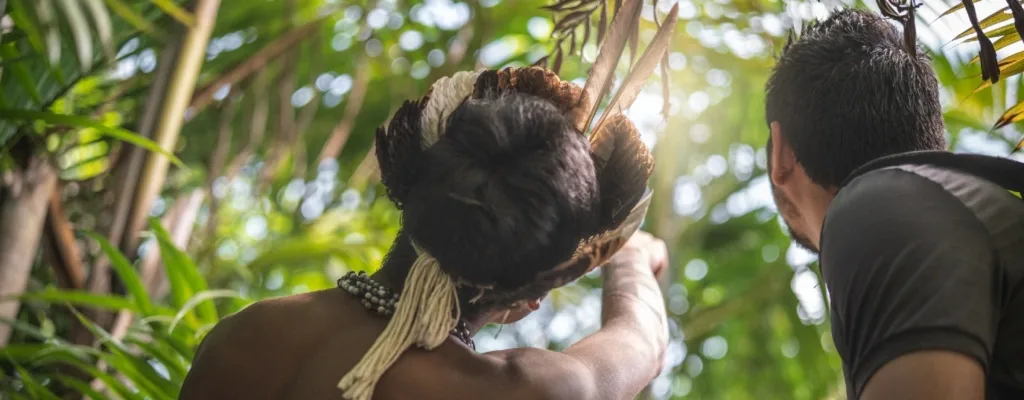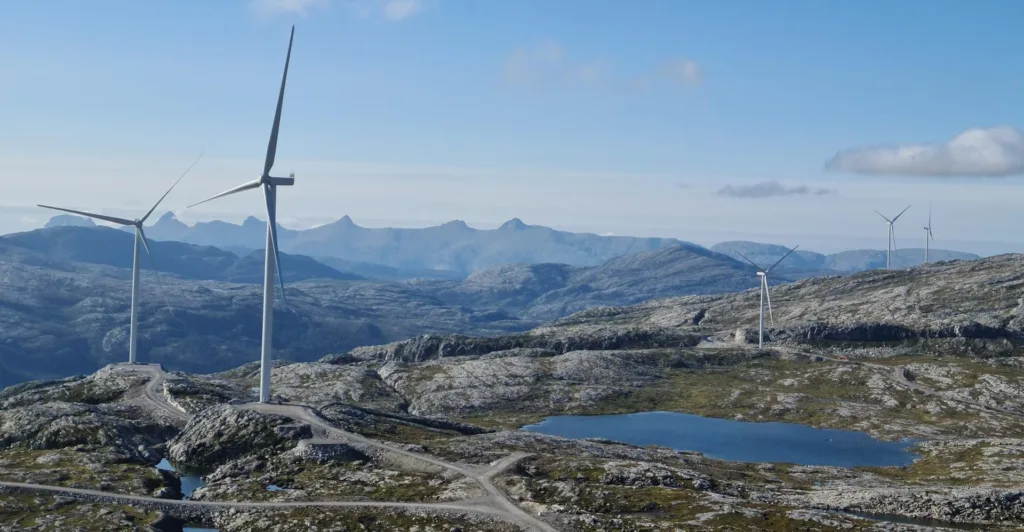Author: Sujin Jun
The term sustainability is defined as the potential to maintain the long-term well-being of communities based on the social, economic, and environmental needs of present and future generations. This term merged with the emerging discourse of development, resulting in the seminal 1987 Brundtland Report which popularized the concept of sustainable development – the development that meets the needs of the present without compromising the ability of future generations to meet their own needs.
Since then, the international community has embedded the concept as a part of global policy. The UN 2030 Agenda of Sustainable Development – setting the mainstream benchmark of Sustainable Development via the 17 Sustainable Development Goals (SDGs). The SDGs establish a “universal template” for all countries, however, most actively shaped and promoted by the Global North based on their needs and capacities. The interim evaluation on the progress of the 17 SDGs is far from promising a satisfactory outcome. In light of the evident inertia, it is questionable whether the sustainable development agenda promoted by the Global North can indeed adequately result in ecological preservation while achieving economic and human development.
To that end, an alternative body of knowledge that contrasts sharply with the Global North’s sustainable development and highlights its limitations is the Indigenous Knowledge (IK).
Despite Indigenous peoples’ contribution to safeguarding the biodiversity around them, they are one of the most marginalized voices in the international discourse, including that relating to sustainable development. An additional hurdle is the colonial legacies that undermine their role to play an active role in shaping global policies. As stewards of biodiversity and their local communities for centuries, Indigenous Knowledge has stood the test of numerous crises that threatened their existence, based on their holistic worldview and emphasis on healthy interaction with nature.
This article sheds light on the fundamental differences between the Global North and Indigenous approach to sustainability – analyzing how the nature-human relationship is defined by each and why decolonization is relevant for the Global-North-driven mainstream paradigm.
United Rising, as an organization that promotes a more inclusive and holistic approach to sustainability, takes note of the pressing need to challenge existing frameworks and explore the deeper meaning of sustainability by taking Indigenous Knowledge as a source of inspiration.

Indigenous Knowledge and Sustainability
Indigenous Knowledge connects economic, cultural, political, spiritual, ecological, and material spheres of life in order to form a holistic understanding of existence. It is the product of direct experience of nature and its relationship with the Indigenous peoples. Indigenous Knowledge particularly emphasizes on the context of localness in which it is produced, making it specific and easier to adapt to changes. Indigenous knowledge is “accumulated by people who by centuries of unbroken residence develop an in-depth understanding of their particular world”. In other words, it is “grounded in a people and a place”, not merely as an individualized or disconnected into a universal abstract.
According to the Fifth Assessment Report of the Intergovernmental Panel on Climate Change (IPCC), Indigenous Knowledge is one of the major resources for adapting to climate change. In the context of sustainability and resource management, their traditional ecological knowledge – which is just one subset of Indigenous Knowledge – becomes relevant as a source of knowledge because it has been evolved and transmitted based on meticulous observation and experience for centuries. Furthermore, Indigenous Knowledge is an excellent framework to provide an alternative to the dominance of Western discourse, functioning as a form of resistance against colonialism and imperialism.
The key characteristic that defines Indigenous sustainability is that of interconnectedness. The Indigenous peoples emphasize the interrelations between all living entities, including human beings, as originating from one single family. Human beings and the natural environment are not deemed as separate but forming one single domain. Such an interpretation does not leave room for any natural resource to be considered as a ‘commodity’ for material gain. Nevertheless, the notion of ‘sustainable development’ may be reconciled with Indigenous Knowledge. For this, the process of ‘development’ should not be accentuated by material gains but rather to foster the general welfare of the community and to preserve the healthy balance with nature.
The sense of interconnectedness necessitates Indigenous peoples to commit to considering all the relations between the living entities. Based on the sense of responsibility and mutual respect flowing from this premise, people act in reciprocity to nature to maintain the cycles of giving and receiving. Through everyday practice, every person learns that he/ she is a direct participant in keeping a healthy and balanced relationship with the natural environment. As mentioned before, Indigenous sustainability does not isolate its environmental, social, and cultural aspects but interconnects them. The duty owed by the present generation to the future generation does not stop at carrying out sustainable practices but also accumulating communal knowledge through direct experience and passing them down. The transmission of this accumulated Indigenous Knowledge is facilitated via mediums of stories, languages, traditional rituals, and other cultural expressions. Hence, there is a stronger and more personal motivation behind ecological preservation according to Indigenous sustainability, stemming from a holistic perception of human beings and the environment.
Despite the profound understanding of sustainability, Indigenous Knowledge is not fully integrated into mainstream discourse. Indeed, a very different paradigm of sustainability unfolds under the influence of the Global North.
Mainstream Sustainable Development Agenda: A Distorted Conflation of Progress and Sustainability?
The UN 17 SDGs, arguably the most mainstream framework on sustainable development, tend to lean towards a mere human-centric, if not state-centric approach, fueling the normalization of exploitation and extractive activities. In the current academic and public discourse, there is a growing concern over the usage of the two terms- sustainability and sustainable development – almost synonymously, when there is a fundamental difference between them. The SDGs have been criticized for embodying an oxymoronic ideal that attempts to sustain an inherently unsustainable system.
To understand the context of this criticism, one must observe the historical concept of progress. Inquisition into the concept of progress, in simple terms, was related to the question of what the advancement of humankind ought to be. Since the Industrial Revolution in the 18th century, the spectrum of progress encompassed economic growth and material abundance, backed by scientific technology. The optimism for economic growth fluctuated in the aftermath of the two world wars and economic recession. Even then, the proponents believed that economic growth, by obtaining (new) resources, would eventually remedy the scarcity of finite resources and environmental damage. However, the problems of pollution and population growth began to be highlighted as detrimental to the environment, ironically with the advance of media technology. With the looming climate doom, the term ‘sustainability’, which was predominantly used in ecology, began to be transplanted into development discourse.

Inherent in the concept of progress is the idea that human beings and nature are separate. This human-nature dualism stands in stark contrast with Indigenous peoples’ belief in interrelations with nature. In the Western view, there is a clear delineation between the natural environment and human beings. Then, for Western societies, the environment was not an entity to interact with, but a subject of experimentation, manipulation, modification, and subsequent exploitation. This was reinforced by the rise of science as a cultural force of a ‘civilized, modern society’. Such a view eventually redefined the value of nature; nature has its value by virtue of the human’s ability to use it. This justified the rapid institutionalization of capitalism and the advancement of science and technology.
The human-nature dualism is well reflected in the UN 2030 Agenda which describes it as a plan for “people, planet, and prosperity”. Such a position has been criticized for upholding neo-liberal interests, leaving much room for economic growth to take precedence over ecological preservation. Indigenous perspectives have a close resonance with de-growth or no-growth development and often see economic growth as harmful to healthy communities and the environment. For instance, zooming into SDG 9 Industry and Infrastructure, there is no doubt that several infrastructures could add to future benefits, increasing the quality of life for many users. From an Indigenous point of view, however, these infrastructure projects will be truly sustainable only if it take into holistic consideration of communal and environmental well-being. Systematically, these industrial and extractive activities harm Indigenous communities and the biodiversity they preserve. The itemization of sustainable development into isolated goals is also incompatible from the Indigenous perspective. A common practice among researchers and policymakers concerning the SDGs is to choose one or two goals to focus on. This separation or singling out is in conflict with the holistic vision of development envisioned in Indigenous Knowledge.
The Global North sustainable development’s stance towards Indigenous groups still remains largely patriarchal and demoralizing. For instance, the UN Earth Summit urged the governments and international agencies to financially commit themselves to training and assisting the Indigenous communities for capacity-building in sustainable development. The emphasis on developed countries’ obligation to cooperate in the transfer of knowledge and scientific technology to Indigenous communities is dismissive of the value of Indigenous Knowledge that has been accumulated for centuries. The fundamental rights of Indigenous consultation and participation remain procedural and often overlook the substantive value of what Indigenous Knowledge can really contribute to sustainability. Furthermore, Indigenous peoples are often confined to the disempowering narrative and are rendered to a victim status in international discourse. In this way, not only is the mainstream sustainable development paradigm unsustainable and disconnected from Indigenous Knowledge, but it is also, in reality, functioning in an extended form of colonialism that severely undermines Indigenous groups’ capacity and exercise of their rights.
In the Sixth Assessment Report, the IPCC for the first time acknowledged that colonialism was one of the factors exacerbating climate change and the vulnerability of Indigenous peoples. This is perhaps a clear indication for the States that decolonizing climate policies must be prioritized in order to achieve any meaningful result. The 2015 Paris Agreement is considered to have somewhat attempted to decolonize climate governance. Adopted in the broader context to achieve sustainable development, it envisions a rights-based climate action and makes several positive references to empower Indigenous peoples. However, the realities behind these climate actions remain largely unchanged for them. For instance, it is now clear that the green transition initiatives, notably the European Green Deal, put disproportionate pressures on Indigenous communities (and developing countries) by overexploitation of natural resources heavily weighed by capitalist logic. These types of unsustainable actions are creating a new harmful dynamic of ‘green colonialism’ for marginalized communities, including Indigenous peoples. Hence, the solutions adopted by Global North under the label of sustainable development focus more on exploitation and maintaining the status quo, instead of coexistence with nature as emphasized in the Indigenous Knowledge.

To conclude…
Indigenous Knowledge embodies an essential approach to harmonious coexistence between the natural environment and human beings. It focuses on maintaining a healthy balance with nature. Hence, the role of human beings is to perpetuate a reciprocal cycle that does not harm the existence of both nature and themselves. Whereas, Global North has distorted the meaning of sustainability by reducing nature as something to be controlled by human beings and sought for economic growth in an unrestrained manner. As a result, the three goals of sustainable development, namely, social justice, economic development, and ecological preservation, are pursued in a fragmented, isolated way.
United Rising embraces the holistic sustainability championed by Indigenous peoples. As an organization, we recognize the urgency to reevaluate the Global North’s sustainable development paradigm and call for reconceptualisation of sustainability, by taking Indigenous Knowledge as a model.